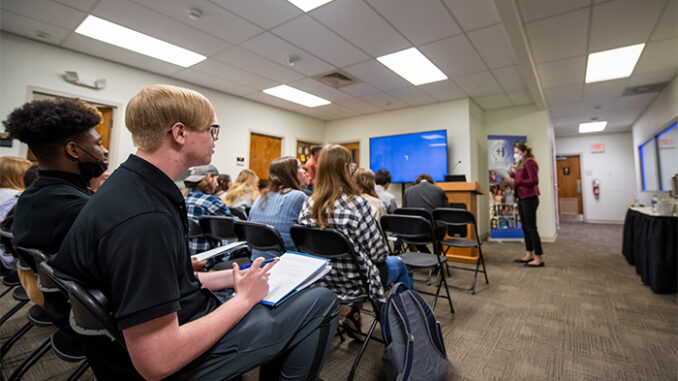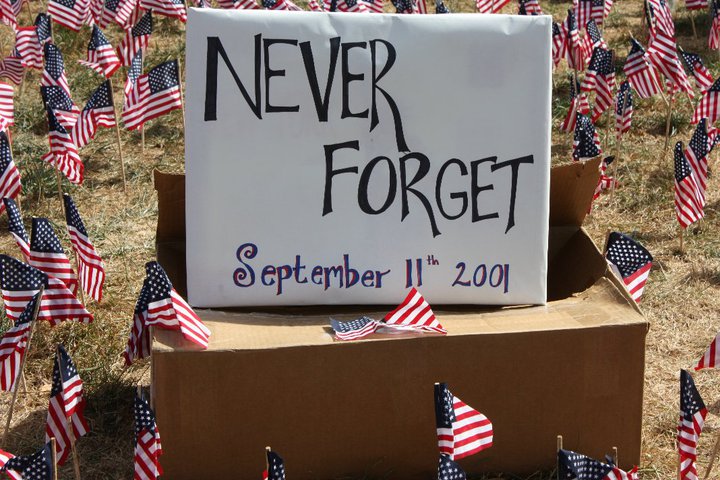
Morgan Kamara and Amanda Smith//
Registration for fall courses begins next week and several new courses will be offered, including an event planning class.
CMA 316 Event Planning, is a three-credit course taught by Brooke Witherow, assistant professor of Communication Arts.
She said the course is designed to introduce students to event planning and management by connecting communication theory to event planning practices. Students can expect to gain practical experience by working in teams to use what they learn in the course through planning both real and hypothetical events.
According to Witherow, the course is being approached through a lens of interpersonal communication, which prompts students to analyze how they can effectively navigate the relationships and partnerships necessary to run events.
The course will also go into depth on how to plan, budget and engage in problem-solving when things inevitably go wrong during events.
“We will be partnering with the CMA program to help run one of the events that CMA typically hosts,” Witherow said. Although the exact event isn’t confirmed yet, Witherow anticipates that students will assist in planning a CMA event where high school students come to explore the college.
The course’s other main assignment consists of working in small groups to plan a hypothetical event of the students’ own desire. Although students won’t actually run these events, they will get the full experience of navigating the planning process and creating a budget.
According to Witherow, there is a lot of planning and preparation that goes into organizing an event that people don’t realize.
“Food is definitely one, the layout of the location as well, coordinating different vendors,” Witherow said. “For example, at a wedding you need a person who’s going to bring the cake, the florist and a venue.”
Other factors that must be taken into consideration include gathering and distributing promotional materials, and invitations, organizing an RSVP system and budgeting. Witherow also emphasized the importance of analyzing how the event contributes to the organization’s larger goals.
While the class is not going to be required for the Communication Arts major, it will be an option for students to take as a skills course. Additionally, the course is expected to be offered every fall semester.
“There’s some interesting data from the Bureau of Labor Statistics that says the job outlook for people going into event planning is actually better than the average,” Witherow said. “The field is growing.”
Witherow also noticed a growing interest in event planning among students, which sparked the idea to put the course together.
“I think it will benefit students because it’s another avenue where they have experience,” Witherow said. “That makes you more competitive on the job market. It’s also another skill set that is also connected to important interpersonal communication theory.”
Witherow said the course will appeal to students who have an interest in marketing, business or working for an organization in a strategic communication fashion.
“It will help give a person a better understanding of how events connect back to the bigger picture of an organization and how to do it in an effective manner,” Witherow said. “It’s just another skill and another area that will hopefully make students more competitive job candidates in the market.”
Other new courses are in global studies, history and psychology, and there are two new honors courses.
GLBS 299, Multicultural Cities, is a three-credit course taught by Gareth Potts, adjunct faculty in global studies. Potts said the goal of the course to generate “an increased appreciation of the many ways in which big cities in the U.S. and around the World are capitalizing upon the benefits of diverse populations and working to overcome some of the challenges that same diversity brings.”
HIST371C Modern Germany is a three-credit course taught by associate professor Corey Campion. The class aims to teach students about the nation’s political, economic and cultural history from the late 19th century to the present. Modern Germany has a prerequisite of a historical or literary analysis core class.
PSY 369 Psychology Junior Seminar, is a two-credit course only for juniors and has five required prerequisites. Visiting assistant professor Gupta Sangeeta will teach the class, and said this course’s goal is to “give psych students an idea of life after graduating with a psych degree.”
Hon397I Eat your Ethics: The Case of Veganism will be taught by CARE project coordinator
Nina Carr and is a three-credit course. The synopsis of the class is an “examination of the arguments for abstaining from animal consumption in modern society, with primary emphasis on the United States,” Carr said. Students must have completed the philosophical inquiry core requirement to take the class.
HON397H: Adaptation the Impossible Challenge is a three-credit course taught by French Professor Didier Course. The goal of the course is to “explore several aspects of the process of the cinematographic transposition of a literary text; how the unique perspective of a writer can be ‘transformed’ into a new medium,” Course said.
Registration begins Monday, April 17, with seniors and juniors. Sophomores can register for courses on April 18 and first-year students can register starting April 19.



Be the first to comment